Psychology and social science are two separate but related areas of study, they both look into how people think, act, and interact with others. We’ll look at the definitions, differences, and links between psychology and social science in this in-depth guide. We’ll also look at how they help us understand the human experience.
What is psychology?
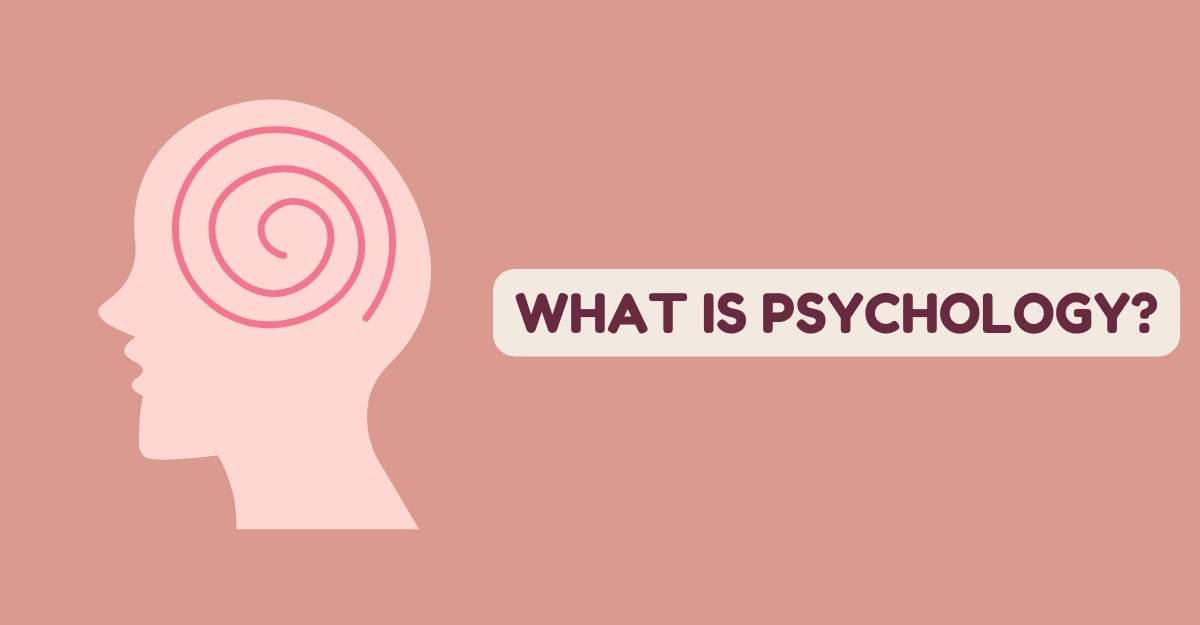
What is psychology?
Psychology is the field of science that studies how people think and act. Cognitive psychology, clinical psychology, developmental psychology, and social psychology are some of the subfields that make up this study. Psychologists study things like mental health, awareness, feeling, behavior, and how we think and remember things using science methods.
Psychology tries to figure out how people see, think, feel, and act in various settings. It looks at both normal and abnormal behavior to try to figure out how and why people behave the way they do. Psychologists study people by doing experiments, observing them, and doing research. They do this to learn more about human nature and to solve problems that people and society face in the real world.
What is social science?
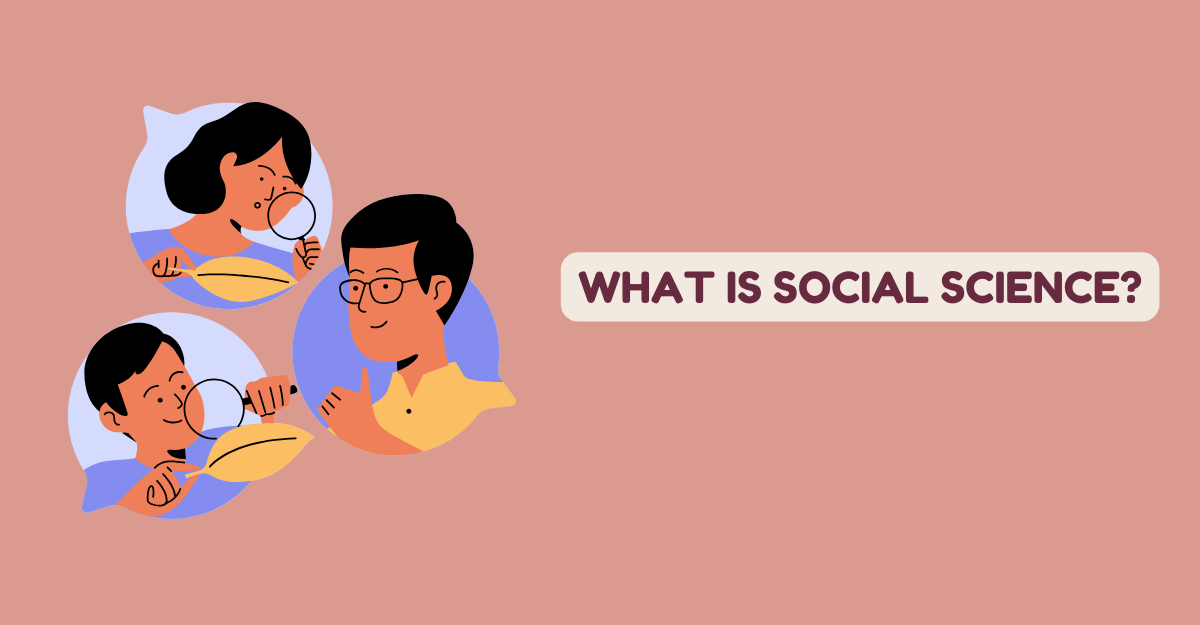
What is social science?
Social science is a broad field of study that includes many different fields that study people, their interactions, and how they live together. Sociology, history, economics, political science, geography, and other fields are all part of it. Social scientists study many things about society, like institutions, culture, relationships, and social systems.
Scientists who study social science try to figure out how societies work, how they are organized, and how they change over time. Some of the things it talks about are social injustice, culture variety, political systems, economic behavior, and globalization. Social scientists use research methods to try to find out things that help make laws, bring about social change, and make people and groups healthier and happier.
Psychology vs Social Science: Understanding the Differences
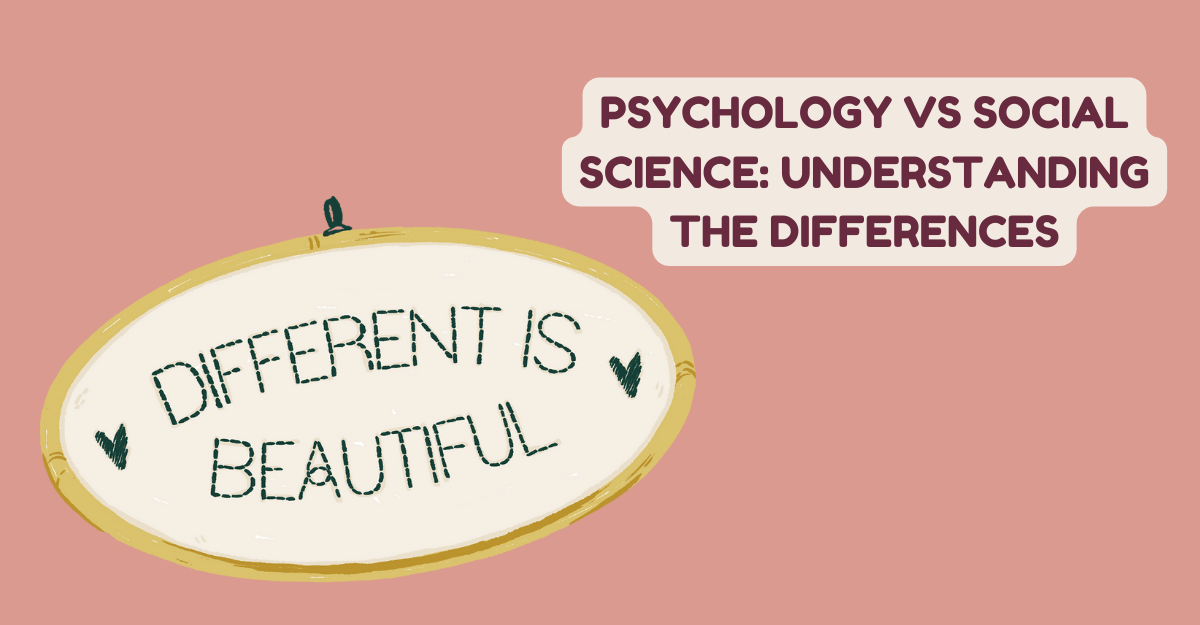
Psychology vs Social Science
| Aspect | Psychology | Social Science |
|---|---|---|
| Focus | Individual behavior, cognition, mental processes | Human society, social structures, interactions |
| Scope | Study of the mind and behavior of individuals | Examination of human societies, cultures, institutions |
| Subfields | Clinical, cognitive, developmental, social psychology | Sociology, anthropology, economics, political science |
| Methods | Experiments, surveys, observations, case studies | Surveys, interviews, ethnography, statistical analysis |
| Applications | Mental health, therapy, education, workplace behavior | Public policy, social programs, organizational behavior |
| Emphasis | Understanding individual differences and experiences | Analyzing social patterns, trends, and phenomena |
Why is Psychology Considered a Social Science?
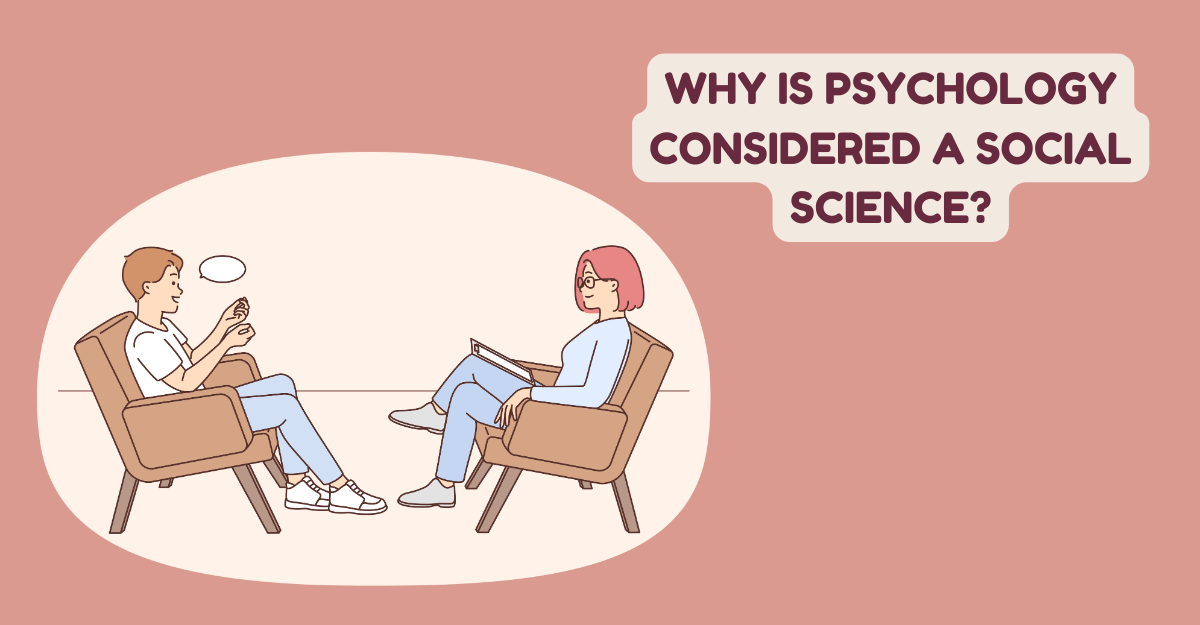
Why is Psychology Considered a Social Science?
Psychology is considered a social science because it examines human behavior within social contexts. While it focuses on individual thoughts, feelings, and actions, it also acknowledges the influence of social factors such as culture, family, peers, and society at large. Social psychologists, for example, study how social interactions, group dynamics, and cultural norms shape individual behavior and mental processes. Additionally, psychology often collaborates with other social science disciplines to address complex societal issues and promote human well-being.
Social Psychological and Personality Science: Exploring Human Behavior
Social psychological and personality science is a subfield of psychology that focuses on understanding how individuals think, feel, and behave in social contexts. It examines topics such as attitudes, social cognition, interpersonal relationships, and personality traits. Social psychologists study phenomena such as conformity, obedience, prejudice, and group dynamics to uncover underlying psychological mechanisms and their implications for society.
Difference Between Psychology and Social Science
While psychology is a subset of social science, there are key differences between the two fields. Psychology focuses primarily on individual behavior, cognition, and mental processes, whereas social science encompasses a broader range of disciplines that examine human societies, cultures, and interactions. While psychology often utilizes experimental methods to study individual behavior, social science disciplines employ various research methods to explore social phenomena at the group, community, or societal level.
Is Psychology a Social Science or a Natural Science?
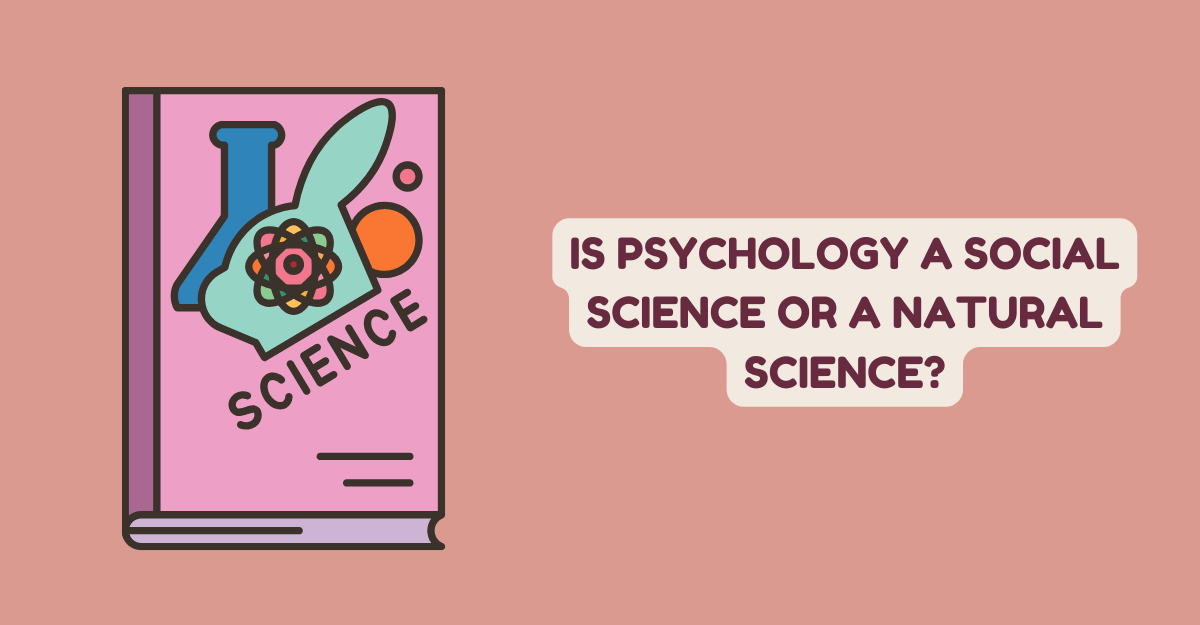
Is Psychology a Social Science or a Natural Science?
Psychology is considered a social science due to its focus on human behavior, cognition, and social interactions. While it shares some similarities with natural sciences in its use of empirical methods and scientific inquiry, psychology primarily investigates psychological phenomena within social contexts. It examines how individuals are influenced by their social environment, cultural norms, and interpersonal relationships, making it inherently interdisciplinary and aligned with the goals of social science disciplines.
FAQs
- What is Psychology?
- Psychology is the scientific study of the human mind and behavior, encompassing various subfields such as clinical psychology, cognitive psychology, and social psychology.
- What defines a Social Science?
- Social sciences are disciplines that study human society and social relationships, including sociology, anthropology, economics, political science, and psychology.
- How does Psychology relate to Social Sciences?
- Psychology is considered a social science because it investigates human behavior within social contexts and acknowledges the influence of social factors on individual thoughts, feelings, and actions.
- What are the main branches of Psychology?
- The main branches of psychology include clinical psychology, which focuses on mental health and therapy; cognitive psychology, which studies mental processes such as perception and memory; and social psychology, which examines how social interactions influence behavior.
- What distinguishes Psychology from Natural Sciences?
- While natural sciences study natural phenomena and physical processes, psychology focuses on human behavior, cognition, and mental processes, making it a social science rather than a natural science.
- How do psychologists conduct research?
- Psychologists utilize various research methods, including experiments, surveys, observations, and case studies, to investigate psychological phenomena and test hypotheses about human behavior.
- What role does culture play in Psychology?
- Culture significantly influences psychological processes, shaping individuals’ beliefs, values, and behaviors. Psychologists study cultural differences and their impact on cognition, emotion, and social behavior.
- What is the importance of Psychology in society?
- Psychology contributes to understanding human behavior, promoting mental health and well-being, informing public policies, and addressing social issues such as prejudice, discrimination, and inequality.
- Can Psychology be applied in different settings?
- Yes, psychology has diverse applications in clinical settings, educational institutions, workplaces, sports, and community organizations, where psychologists provide therapy, counseling, assessment, and intervention services.
- What interdisciplinary connections does Psychology have?
- Psychology intersects with various disciplines, including sociology, anthropology, neuroscience, medicine, and education, facilitating interdisciplinary research and collaboration on complex issues.
- Are all aspects of Psychology considered social sciences?
- While psychology encompasses aspects related to individual behavior and mental processes, its focus on social interactions, relationships, and societal influences aligns it with social sciences.
- How does Psychology contribute to understanding society?
- Psychology offers insights into individual and collective behavior, social dynamics, and the impact of social factors on mental health, attitudes, and decision-making, enhancing our understanding of society.
- Can Psychology inform public policies and interventions?
- Yes, psychological research informs the development of evidence-based interventions, public health programs, and social policies aimed at addressing societal challenges and improving outcomes for individuals and communities.
- What are some ethical considerations in Psychological research?
- Ethical principles guide psychological research to ensure the protection of participants’ rights, confidentiality, informed consent, and avoidance of harm or exploitation.
- Is Psychology continuously evolving as a field of study?
- Yes, psychology is a dynamic field that evolves with advances in research methods, technology, and theoretical frameworks, adapting to address emerging issues and interdisciplinary developments.
Conclusion
Psychology and social science are very important for knowing how people think, act, and connect with each other. Psychology studies how people think, feel, and act as individuals. Social science, on the other hand, looks at larger social events and what they mean for society. We can learn more about the different things that affect people’s behavior and how they deal with their social surroundings by looking into the links between psychology and social science. Whether they are looking into the complex workings of the mind or social trends, both fields help us understand what it’s like to be human and how to solve problems in the real world.





